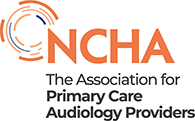

Earwax benefits and risks
Earwax is a natural substance that helps protect the ear canal. However, when it builds up - known as impaction - it can cause hearing loss and earache, contribute to infections, and increase the risks of stress, social isolation and depression [1]. It can also prevent adequate clinical examination of the ear, requiring repeat visits to audiologists, GPs and ENT and delay assessment and intervention [1].
Meeting need
An estimated 2.3 million people with impacted earwax seek professional help each year. With 4 million ears treated annually, earwax removal (dewaxing) is the most common ENT procedure in the UK [2].
Most GP practices and hospital ENT departments no longer have capacity to provide dewaxing services. As a result, millions can no longer access the NHS funded dewaxing services they need as the RNID has identified [3].
The solution is simple.
The NHS should follow the NICE recommendation that most dewaxing services should be provided in primary and community care settings rather than hospitals [2].
Managing impacted earwax in primary care audiology is convenient for patients and cost-effective for the NHS. It also frees up GPs and ENT departments to manage more complex medical problems.
Tackling inequalities in access
Primary care audiology already helps more than 300,000 patients suffering from impacted earwax each year and this is set to grow. Unfortunately, gaps in NHS commissioning mean most of these patients must pay for their care. This unfair situation results in inequalities in access to care and worse outcomes for the least well-off and most disadvantaged in our communities - the very thing the NHS was created to avoid.
It is vital therefore that the NHS funds primary care audiology to manage more cases of impacted earwax.
Affordability
Today, people spend an average of £55 when they have to self-fund this care in primary care audiology. In contrast, for patients who cannot self-fund and have to wait to visit an ENT department in hospital, this can cost the NHS 200% as much per individual [4].
Simple economics show that by commissioning dewaxing services from primary care audiology, many more patients can be treated for the same NHS spend. This is a net efficiency gain and a win-win for patients and the NHS. All savings can then be reinvested in frontline NHS care.
Call for action
As the leading association for primary care audiology in the UK, we call on the four UK governments and all health systems to offer eligible patients access to dewaxing services out of hospital and closer to home for the public benefit. This will ensure people have access to NHS-funded earwax services they need based on clinical priority, not ability to pay, whilst lifting the caseload from GP and ENT colleagues who are under pressure.
5 June 2024
References
[1] NICE, 2018. Hearing loss in adults: assessment and management guideline https://www.nice.org.uk/guidance/ng98/resources/hearing-loss-in-adults-assessment-and-management-pdf-1837761878725
[2] NICE CKS, 2023, Earwax: what are the complications https://cks.nice.org.uk/topics/earwax/background-information/prevalence/
[3] RNID, 2024, Blocked ears, blocked access
[4] £55 is the average price for access to a primary care dewaxing service. In contrast, NHS care might require visiting a GP for a referral to ENT which then remove impacted wax. A GP visit costs £33.19 (PSSRU 2020) and reference cost data shows that clearing the external auditory canal costs £178 as an outpatient procedure, while an ENT outpatient appointment costs £155 on average. These represent the minimum average cost to the NHS (NHS England reference cost 2021/22, uncorrected for MFF at a provider level). If an ENT doctor sees a patient as an outpatient appointment and then rebooks them to remove wax, this could cost the NHS £333. However, assuming the NHS only incurs the cost of a GP visit (33.19) and the lowest average cost to see ENT (£155 excluding any correction for MFF), removing wax would cost £188. This would be 242% more expensive than offering this as a primary care audiology service. However, Munro et al. cite a survey that suggests that adults with earwax required 1-4 NHS visits before attending a dewaxing clinic, so the true cost of existing models of NHS care is likely to be >300% more costly than a primary care audiology dewaxing service.
05 June 2024
Back to list
 Your hearing and aural health
Your hearing and aural health  Commissioners and Policymakers
Commissioners and Policymakers  Member support and guidance
Member support and guidance News and views
News and views
 Hearing map
Hearing map
